From Liberia to New Jersey: Morris Gbolo Brings World Crops to Local Communities
South Jersey Farmer Brings Ethnic Crops to Local Immigrant Communities
Listen 5:27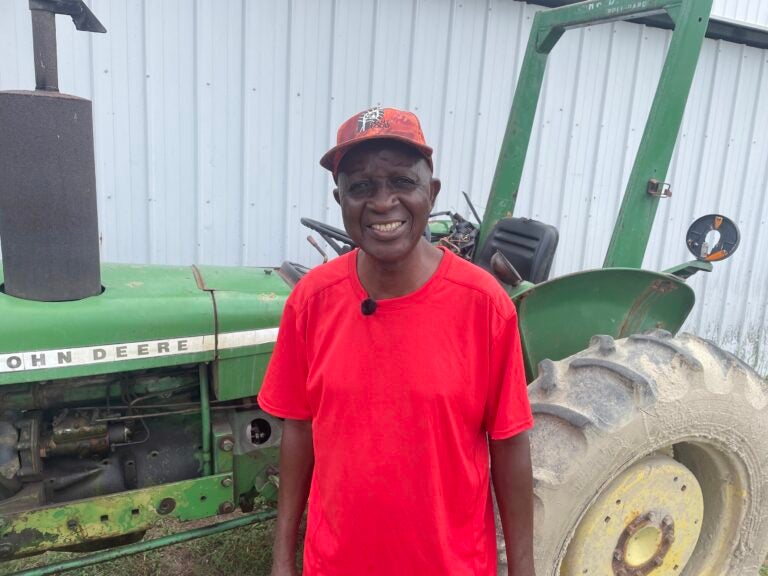
Morris Gbolo (Pic by Cherri)
In the heart of South Jersey, where sprawling farmland meets diverse immigrant communities, Morris Gbolo has made a name for himself as more than just a farmer. He owns and operates Morris Gbolo’s World Crop Farm in Buena Vista, New Jersey, and his land offers much more than traditional produce. Gbolo grows unique crops that remind immigrants of home — whether they hail from Africa, Asia or elsewhere — filling a deep void for those longing to taste their native lands.
Gbolo’s farm covers over 13 acres and features vegetables and herbs unfamiliar to most Americans, including Liberian roselle, jute leaves and bitter ball. The most popular item is habanero peppers.
“We like it hot-hot,” jokes Morris, who grew up on spicy food.
He said the neon green peppers are what customers ask for on the phone. But when they get to the farm, they pick up green peppers and okra, as well as other produce native to West Africa.
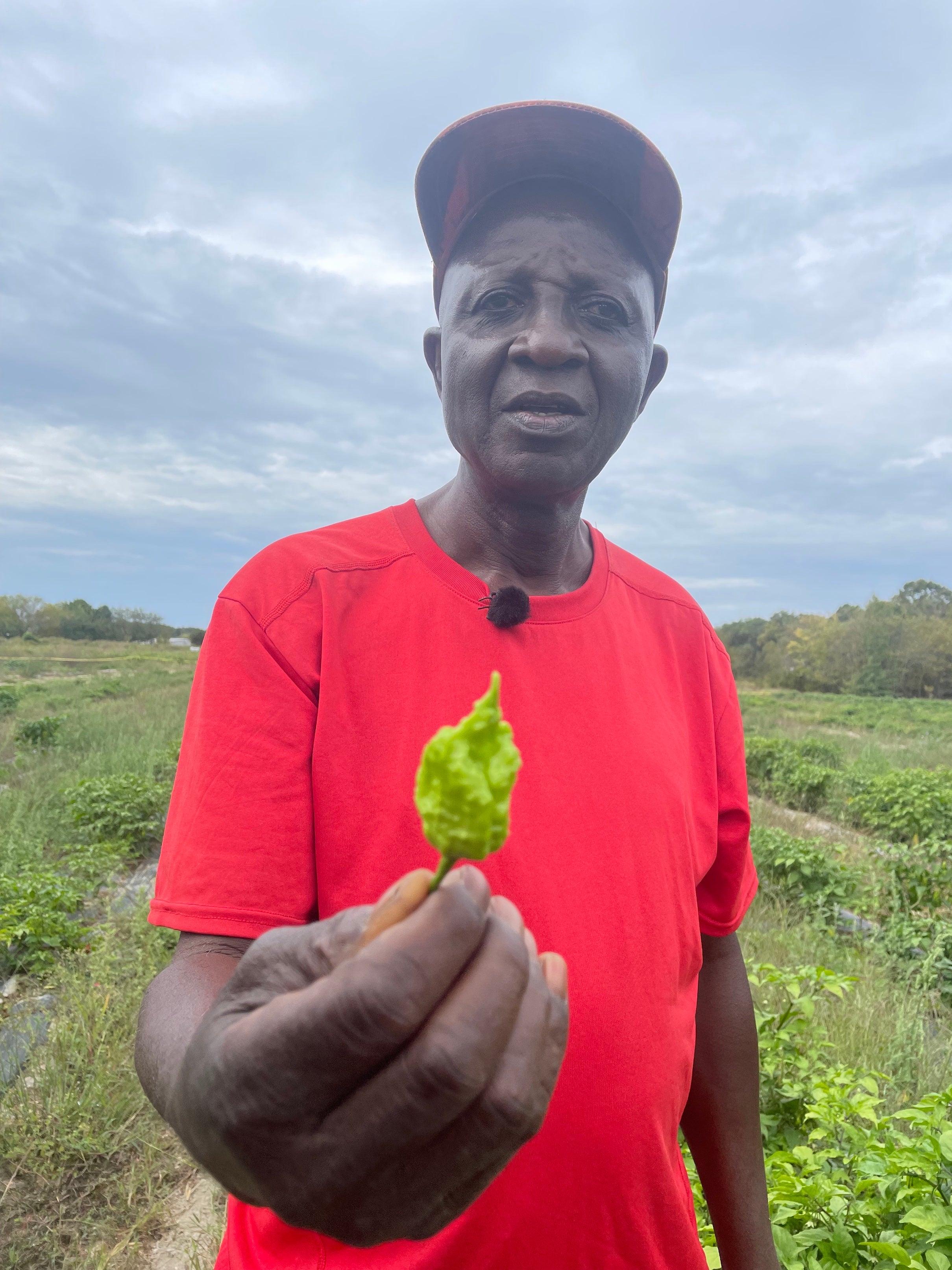
“My objective is for the farm to help my fellow African or Asian who need that joy, that feeling that they are at home,” he said.
For many in the region, the farm is more than a source of fresh produce; it’s a community hub. Customers come from New York, Rhode Island, Pennsylvania, Delaware, Maryland, Virginia and beyond. New York is home to just under 10% of America’s African immigrant population. Maryland also has a vibrant African immigrant community and Philadelphia’s is growing. Gbolo’s farm and its ethnic produce serve these communities, allowing customers to pick their produce, paying just over a dollar per pound for vine-fresh herbs and vegetables otherwise hard to find on this side of the Atlantic.
Dwede and George Wilson, regular visitors from Philadelphia, drive nearly an hour to pick crops, like kittley, to make her famous Liberian Kittley Torborgee. For them, it’s also about keeping the flavors and aromas of their Liberian homeland close.
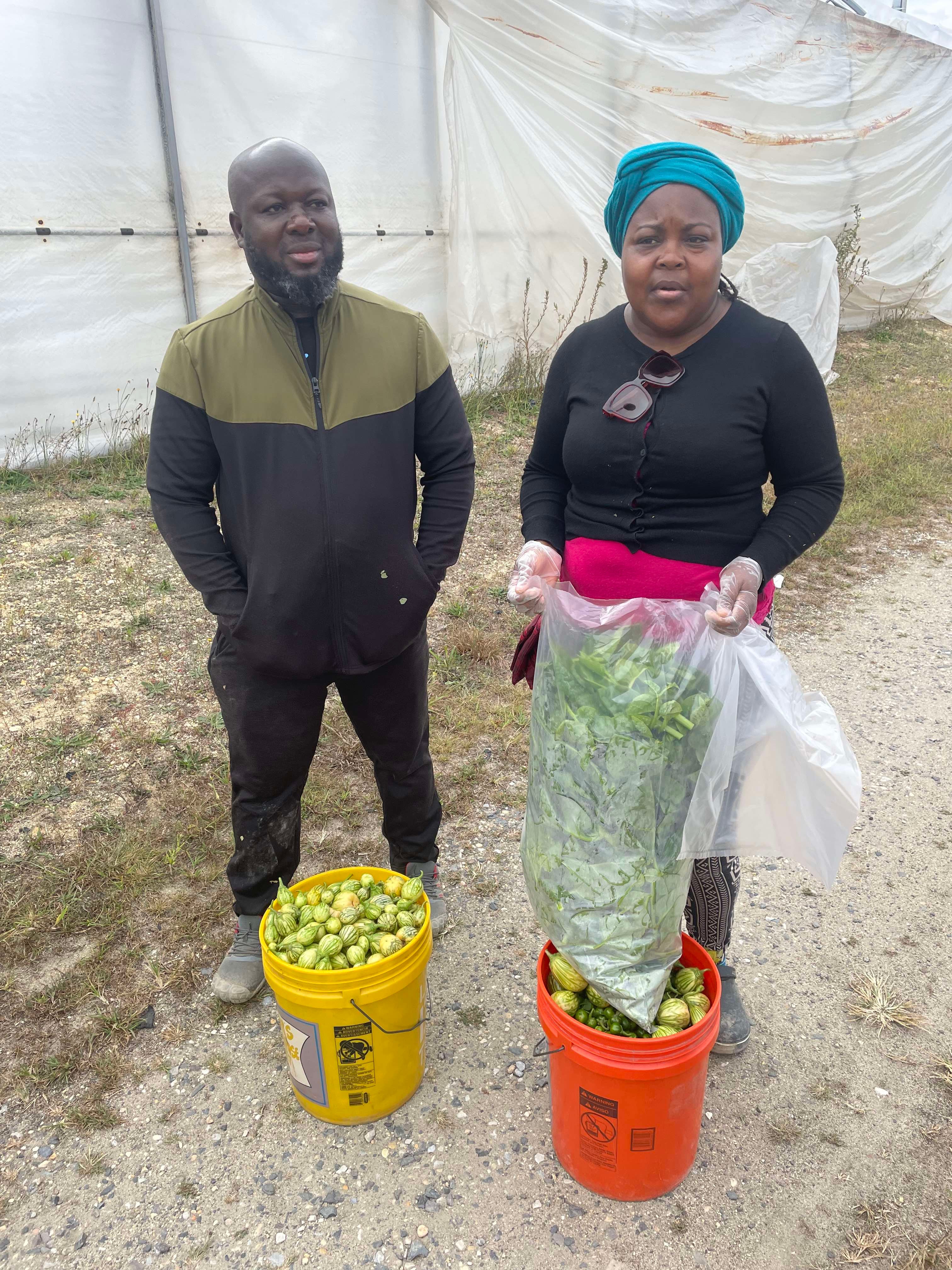
“You can’t find this in Walmart [or] Acme, you can’t find it there and that’s the problem we’re facing,” said Dwede. “So we come here because this is how we grew up.”
The Roots of a Farmer
Gbolo’s farming roots stretch back to his childhood in Liberia, where his father was a subsistence farmer.
“You farm and at the end of the year, you go hungry,” Gbolo recalls.
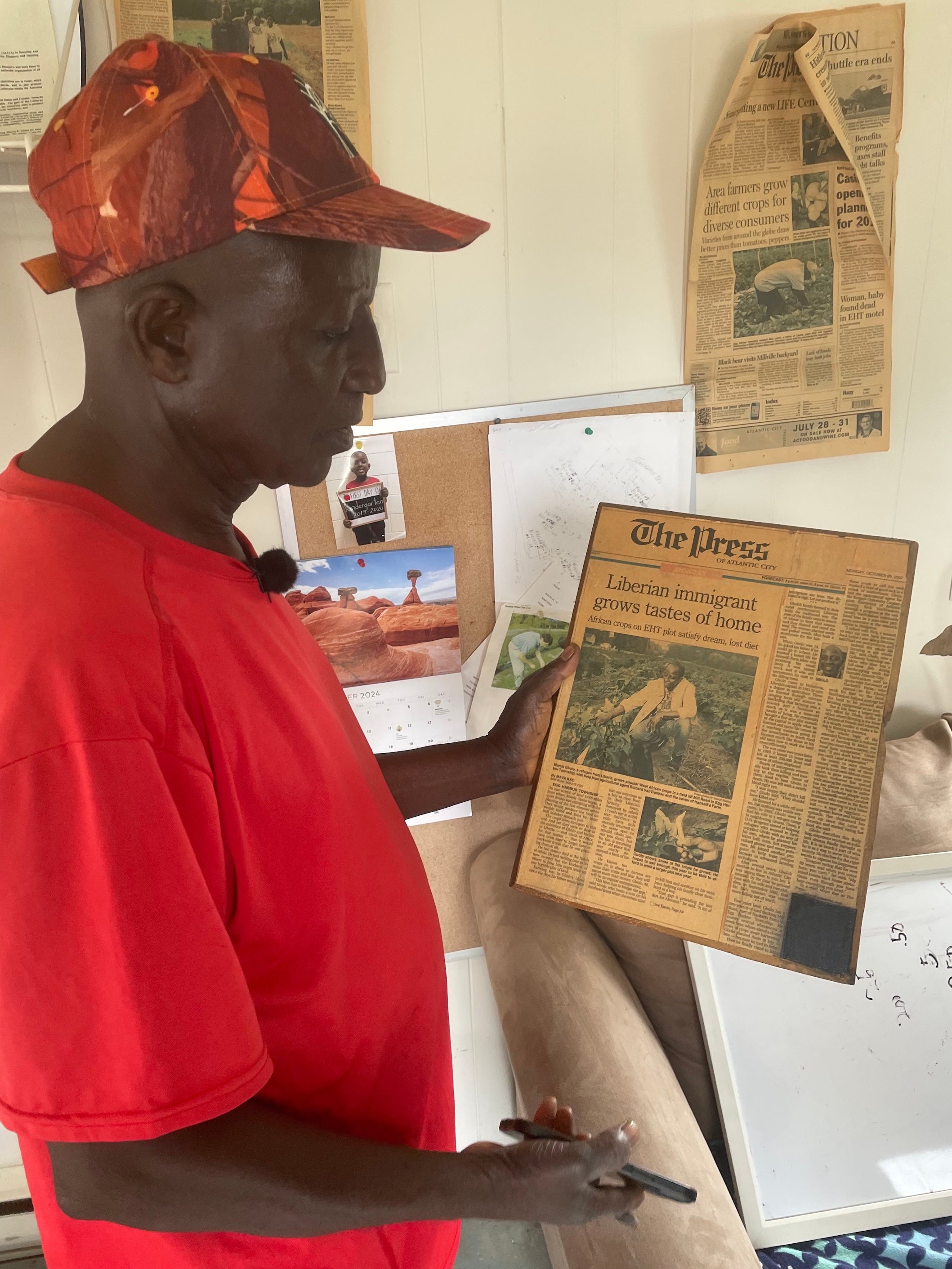
Determined to rise above that fate, Gbolo pursued higher education, studying agriculture in college. However, Liberia’s first civil war in 1989 derailed his plans. Insurgents stormed his campus, and Gbolo said he narrowly escaped death.
“The rebels grabbed me, and I thought I’d be killed,” he said. “But God saved my life.”
Gbolo fled to Ghana as a refugee, eventually joining his wife and children in the United States during Liberia’s second civil war in the early 2000s. Despite the chaos and tragedy, Gbolo arrived in America with a dream.
“I wanted to have my own farm,” Gbolo recalled.
From Dream to Reality
Realizing that dream wasn’t easy. In 2006, Gbolo crossed paths with Rick VanVranken, an agricultural agent with Rutgers Cooperative Extension, who says he stood out immediately.
“Sometimes people come into my office and say they want to farm. I give them all the advice, and I never hear from them again,” said VanVranken. “But if there’s anything Morris is, it’s persistent.”
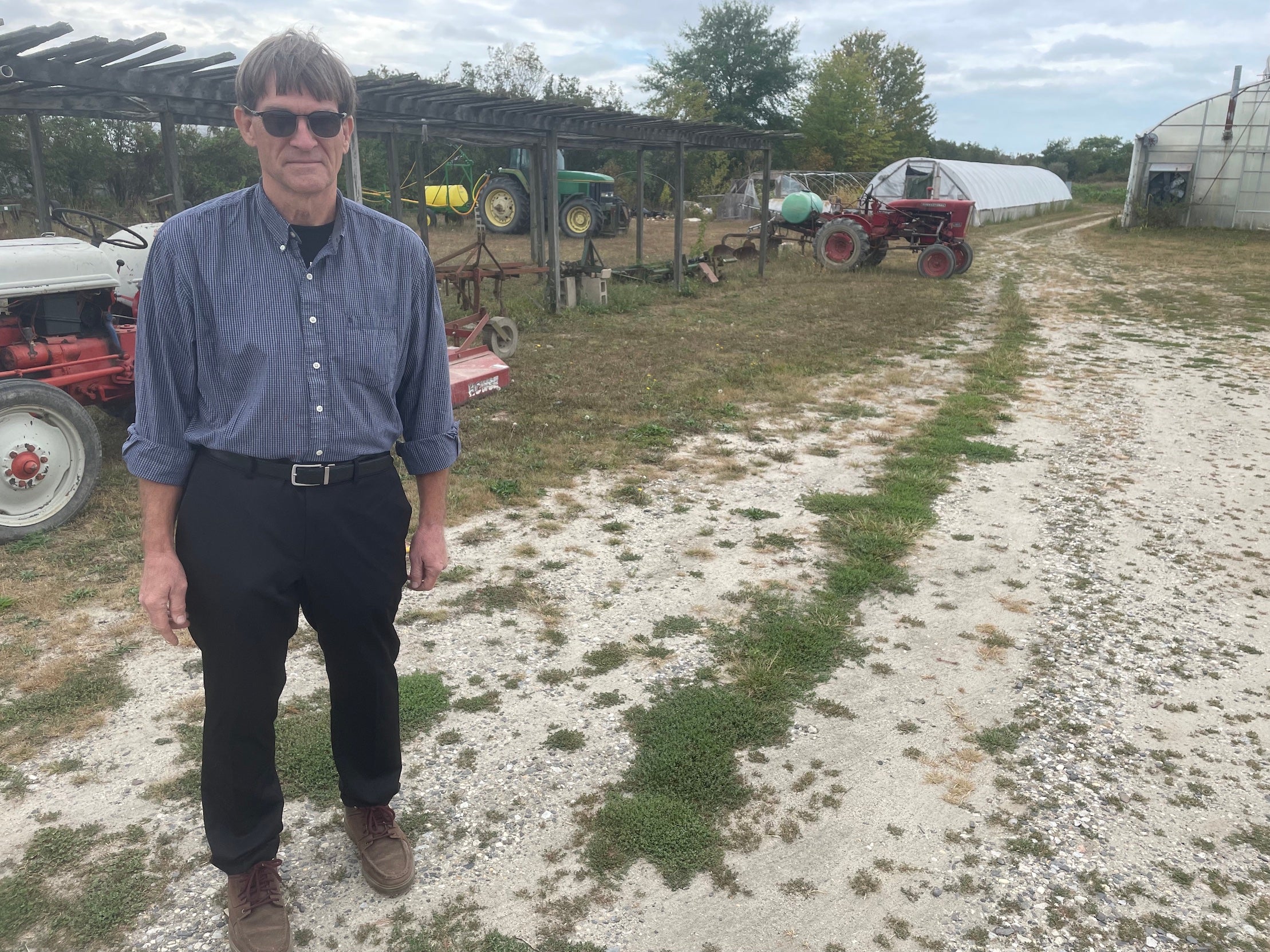
After multiple calls, VanVranken found a job for Gbolo working on a research project testing ethnic crops. Eventually, he helped Gbolo find a few acres of land to lease to start his garden. VanVranken kept mentoring Gbolo and introduced him to a farmer who allowed him to use about eight acres of land, that’s when he began to grow his farm.
“He was growing African crops for his community of immigrants that live here in the U.S. and he was attracting people from all up and down the coast by just by word of mouth,” said VanVranken.
Gbolo worked tirelessly, growing his garden into a small farm. In 2014, VanVranken connected Gbolo with the Farm Service Agency, which helped him buy the land on Tuckahoe Road that is now Morris Gbolo’s World Crop Farm.
“When I heard about the Good Souls Project, I thought, ‘That’s Morris,’” said VanVranken, an avid WHYY listener. “He needs to be recognized for what he’s doing, helping people from Liberia and West Africa find the foods they grew up with.”
A Family Affair
Farming is a family tradition for the Gbolos. Morris’s son, Ernest, has been by his father’s side since childhood. Born in Liberia as the first civil war erupted, Ernest spent much of his youth in Ghana before moving to the U.S.
“My father has been pushing all his life to make his dream come true, and I’m glad to follow in his footsteps,” Ernest said.
The two men work the farm Monday through Friday, from 7 a.m. until 2 p.m., before heading to their full-time jobs. The elder Gbolo works from 3 p.m. to 11 p.m. at the Atlantic City Rescue Mission, supporting people experiencing homelessness and those in recovery. Ernest spends that time as a factory operator. On weekends, they work side by side, from sun up to sun down. At times, Ernest’s 10-year-old son, Emmanuel, tags along.
“He wants to farm too,” said Ernest.
The Gbolo men all share a passion for nature and ethnic crops. Ernest said he admires his father.
“I love to see a lot of smiles on his face,” he said. “I love to see the people smile and look at his accomplishments, it keeps me going, gives me energy and fuels my passion.”
Farming for the Community
For Morris and Ernest, the farm is not just about growing crops. It’s about community, service and legacy. The authenticity of his produce draws in customers from all over, but what keeps them coming back is the feeling of belonging. The Gbolos’ farm connects people to the tastes of their homeland and each other.
As VanVranken notes, Morris isn’t just a farmer: “He has it in his heart that he wants to help the people of Liberia and West Africa who have moved to the U.S. and are longing for the foods they grew up with.”
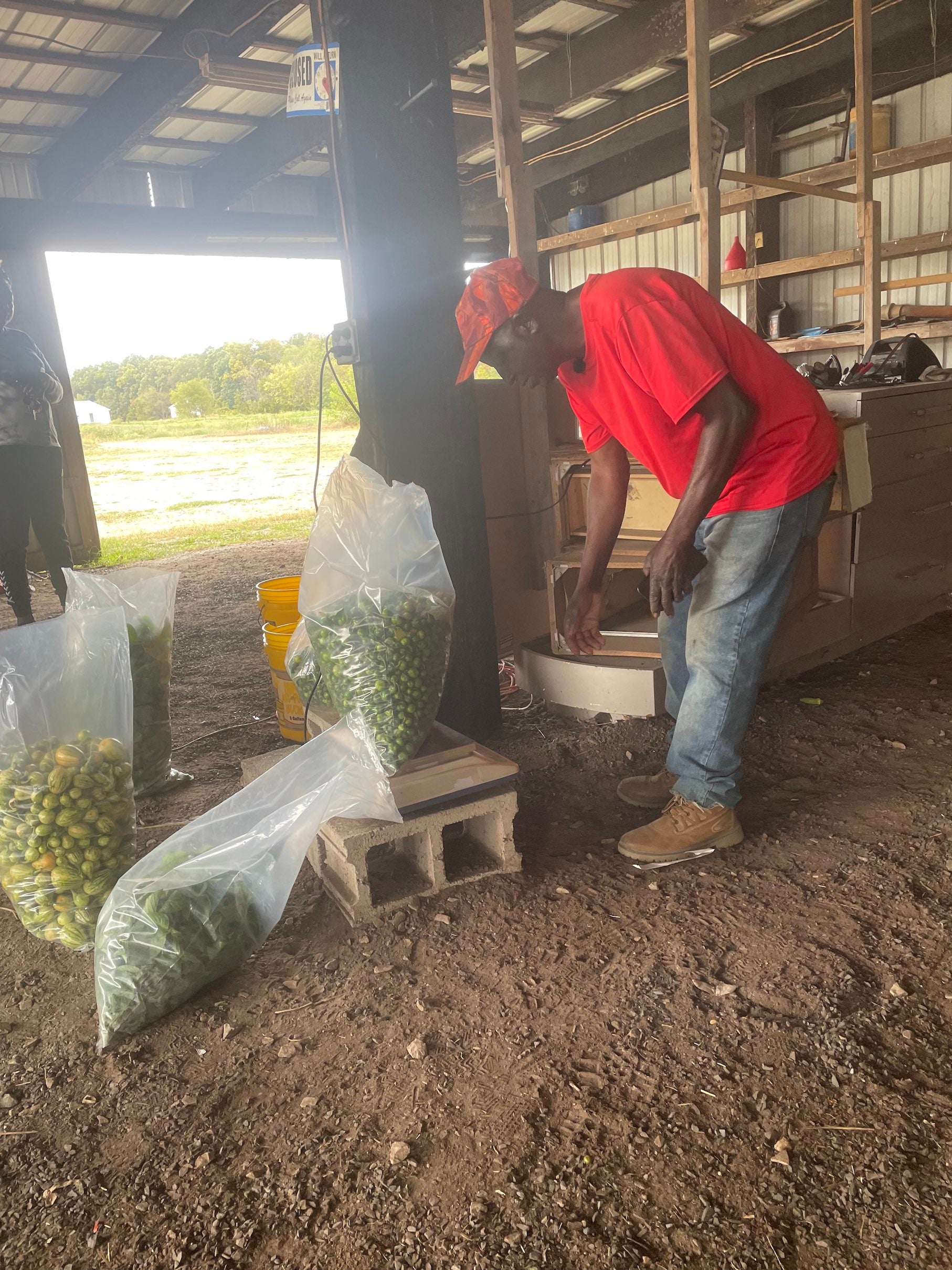
Morris keeps the prices low, so low in fact, some think he ought to raise them. But he says the farm is not about money.
“We just want to break even to sustain the farm,” he said. “My mission is to help feed people. It’s about connecting, it’s about unity.”
Looking Ahead
Morris shows no signs of slowing down. At 65, his vision for the future is simple: “To continue improving the farm,” he says. His dedication to the land, his family, and his community has created something remarkable — a farm where people not only come for produce but to find a piece of home.
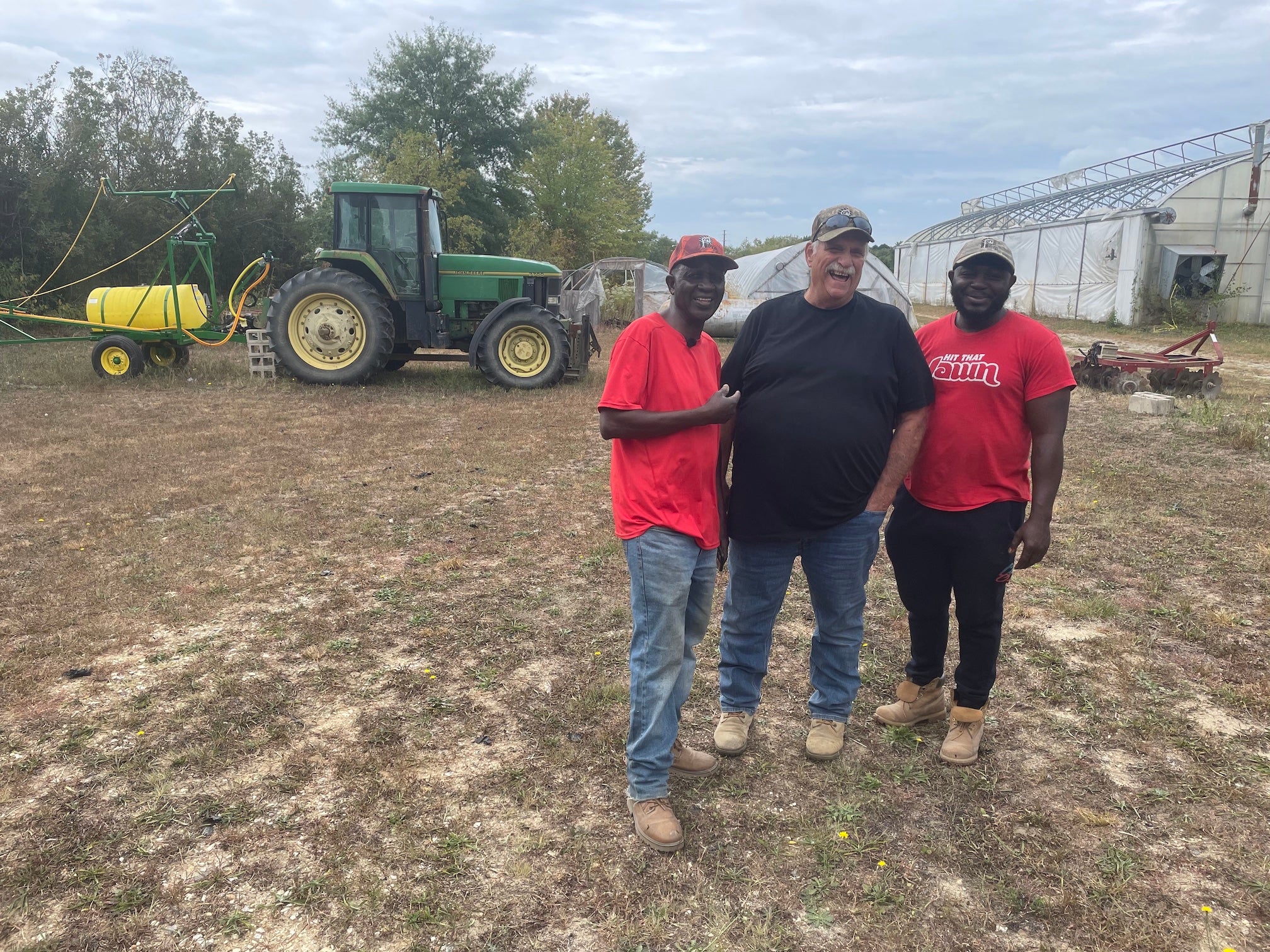
The Gbolo family’s farm is a testament to persistence, community and the power of following one’s dreams. As Ernest puts it, “The farm is about passion, service, and keeping the legacy alive.”
If you know someone who has performed an act of kindness, whether it be big or small and you think they serve as an example of compassion, generosity and service, nominate them here: whyy.org/goodsoulsform.
WHYY is your source for fact-based, in-depth journalism and information. As a nonprofit organization, we rely on financial support from readers like you. Please give today.



